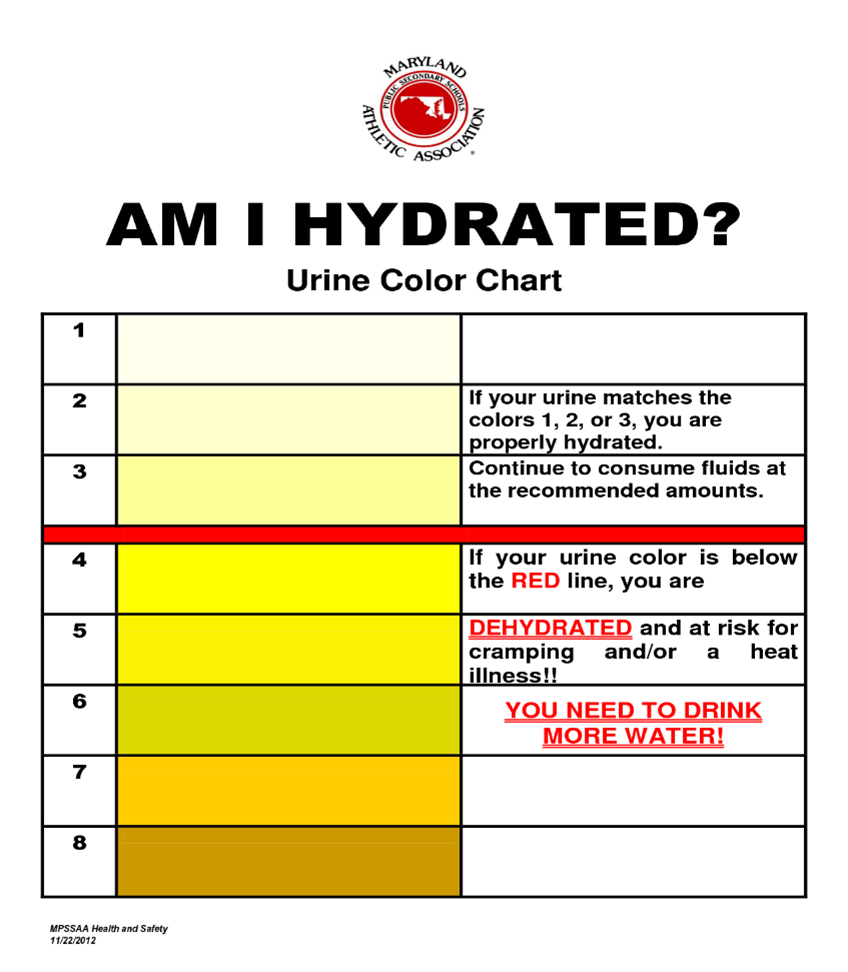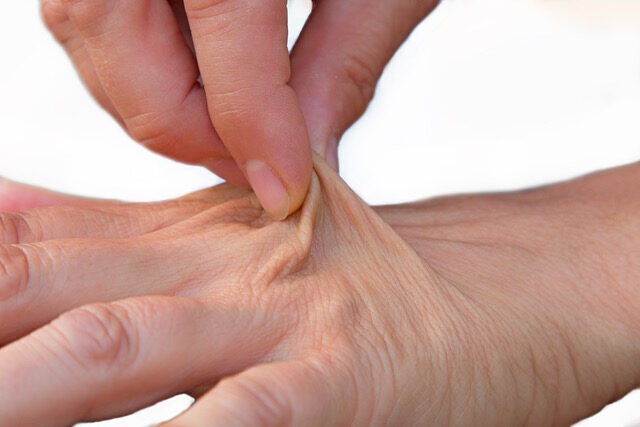“Drink more water; be sure to stay hydrated…”
We hear so much about it these days, but what does it really mean?
Healthy habits include staying hydrated, and that is true at any age. You need to be HYDRATED INSIDE AND OUT. Fluids are your best friend to avoid health problems, support good skin and stay alert and oriented.
Unless you have a medical condition that limits fluids, you really need more than you think. If you notice that your mouth is dry, you are dehydrated.
How much should you Drink to stay Hydrated?
I recommend aiming for at least 64 oz of water or fluid intake per day. But not all fluids are created equal… Some fluids may actually work against you.
Coffee and tea belong to this group. They can dehydrate you because caffeine can act as a diuretic. For most of us, if consumed within reason, they won’t harm us. However, when consumed in excess over time, it may affect our hydration level.
You need to prepare your body when you get ready for a workout or activity, even something as simple as doing homework. During an activity or a workout, everyone needs to be and remain hydrated, or your performance will suffer, and you will not recover as quickly.
Preparation, hydration, and recovery all directly impact how you will perform and feel before, during, and after a good activity or exercise.
Proper hydration is essential not only for performance but also to help prevent infections and maintain a balance in your workout.
Just like your car engine will quit when the fluid levels are low, so will your body. On cold or warm days, you must prepare your car engine before driving, or you may damage the engine. Your body needs the same attention with hydration.
Hydration and Seniors
As I said earlier, staying hydrated is important for all of us at any age.
But often, it’s more challenging for older adults to stay adequately hydrated. And while dehydration can be dangerous at any age, it poses more of a problem to seniors.
As we age, our perception of thirst changes, and we may not realize we are thirsty. Consequently, seniors may become dehydrated without being aware of it.
Adding insult to injury, some seniors deal with incontinence and limit their fluid intake. Unfortunately, this makes becoming dehydrated even more likely.
Medical conditions like dementia also put seniors at risk for dehydration simply because they don’t remember to drink fluids or changes in the brain don’t register the signal.
It’s essential that they will be monitored for adequate hydration and reminded to drink fluids.
Additionally, older adults may be on medications that act as diuretics and may even contribute to dehydration.
If a senior member of your family or a friend, lives alone, independently or in a facility, it’s a good idea to keep an eye on their fluid intake as much as you can.
At the very least, remind them and encourage them to drink plenty of water and why adequate fluid intake is so important.
Prevent Dehydration
Of course, the best defense is prevention…
So, make it a priority to drink plenty of water. Avoid sodas and too much coffee because of their potentially dehydrating effect.
Without a doubt, it’s best to stick to plain water!
Now here’s a little Fact about me…
I spent 26 years as a hockey mom in a cold hockey rink, watching my four sons play hockey at all levels and positions.
I watched the goalie sweat for 26 years! My youngest son was a goalie, and he was dripping after a practice or game.
Per some sources, a goalie can lose as much as three liters (3/4 of a gallon) of fluid per practice or game!
He always kept a water bottle on top of the net, and when players returned to the bench, they all hydrated to maintain their performance.
What to Look for…
An excellent quick daily indication of hydration is the color of your urine. Yep, color is important because it will indicate the level of dehydration.
Here’s a chart because a picture is worth a thousand words…

The bottom line is this…
Your urine should be as light as possible. If it’s a dark yellow, it means you’re dehydrated. Additionally, the dark-colored urine often smells foul, which is another indication you’re dehydrated.
Rehydration with a liquid certified by the BSCG (Banned Substance Control Group) is also important.
So, drink up… and stay hydrated!
Questions? Get in touch and let me know how I can help… just leave your comment below.
Here’s to staying healthy!
Dr. Debbie
